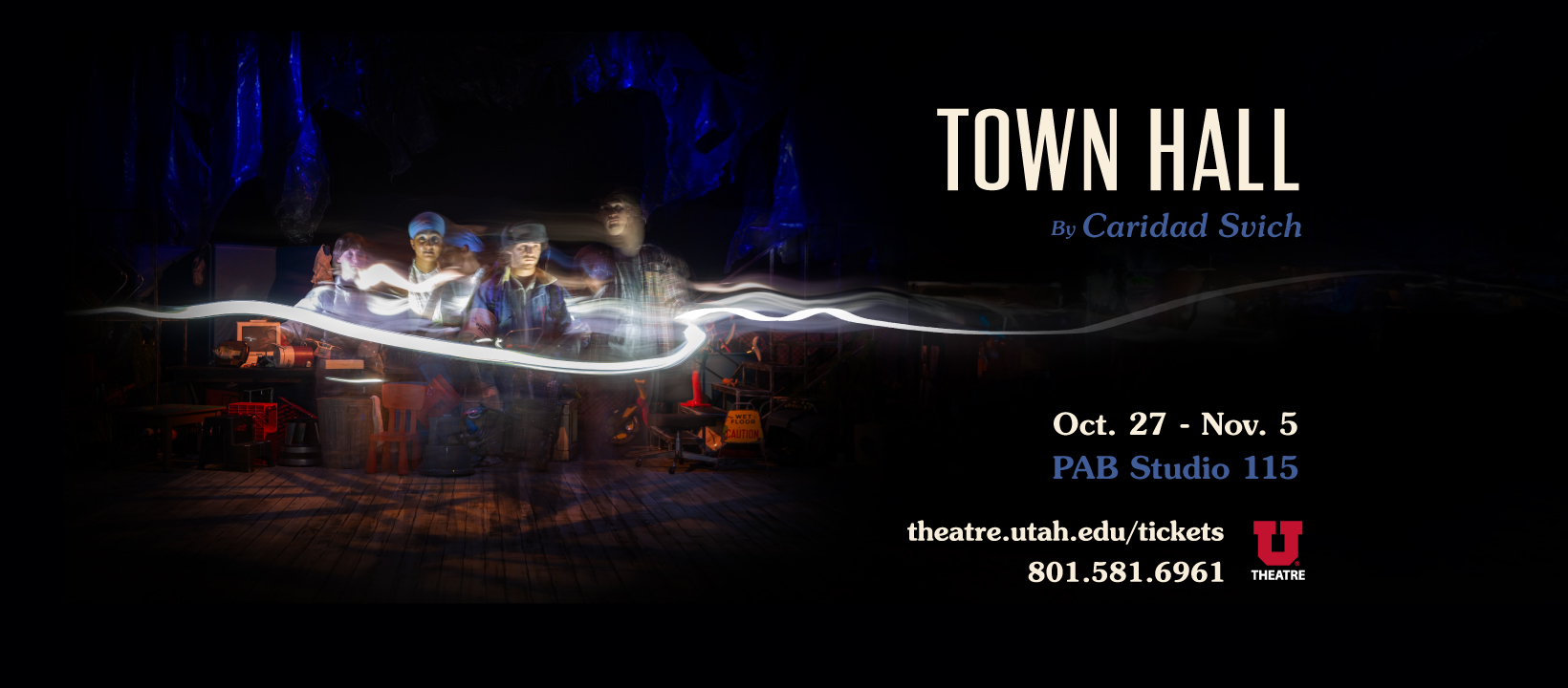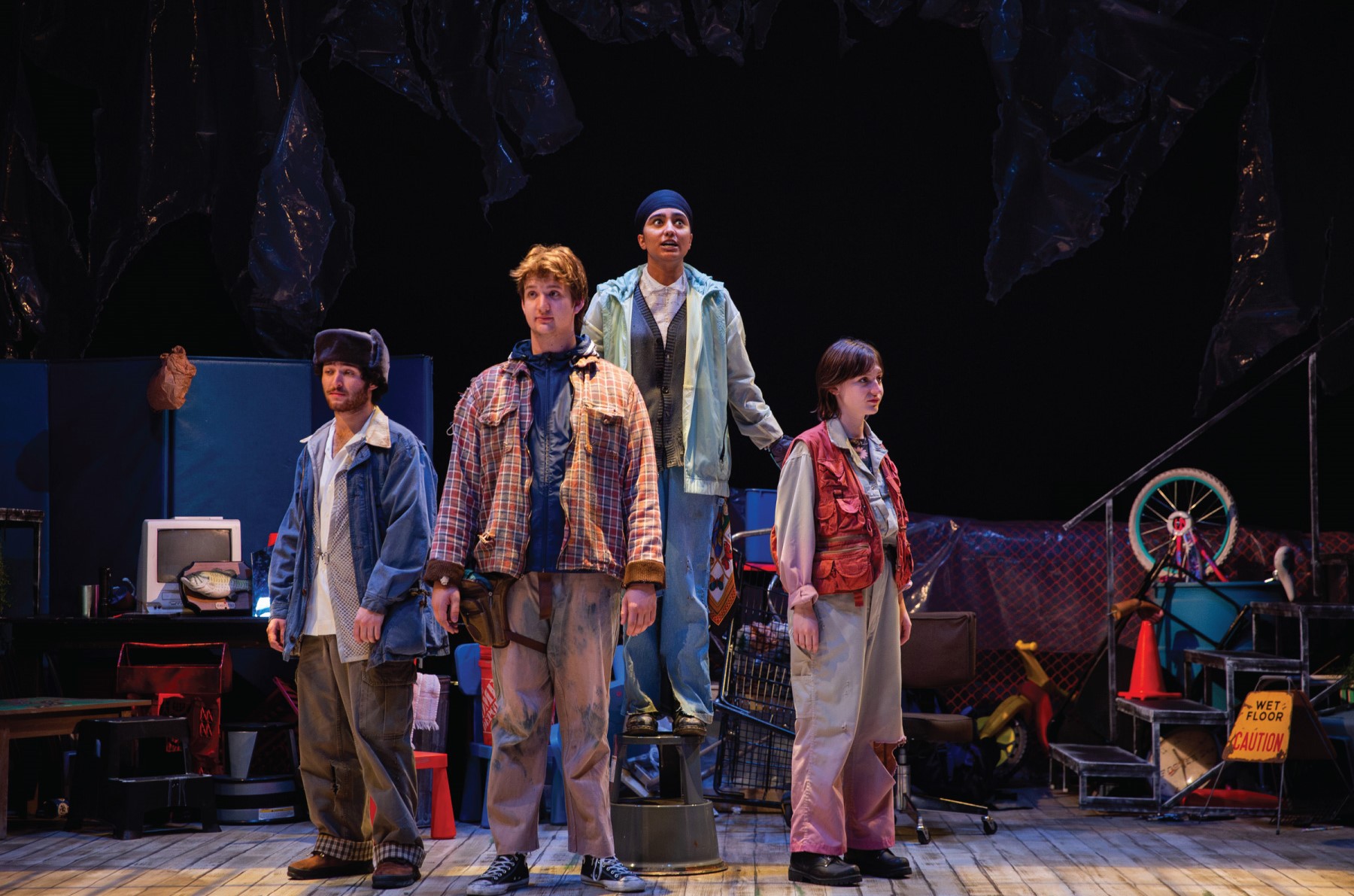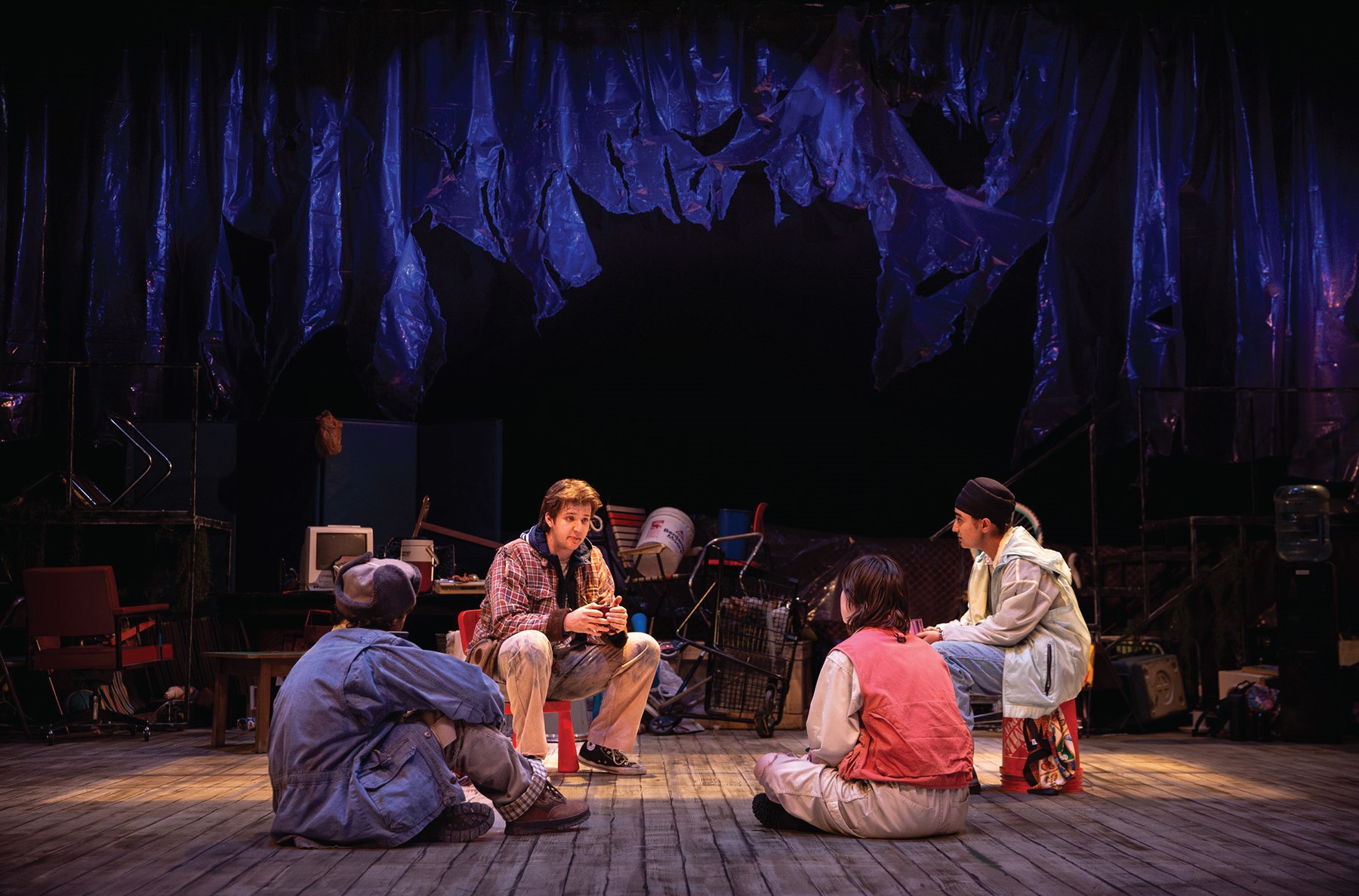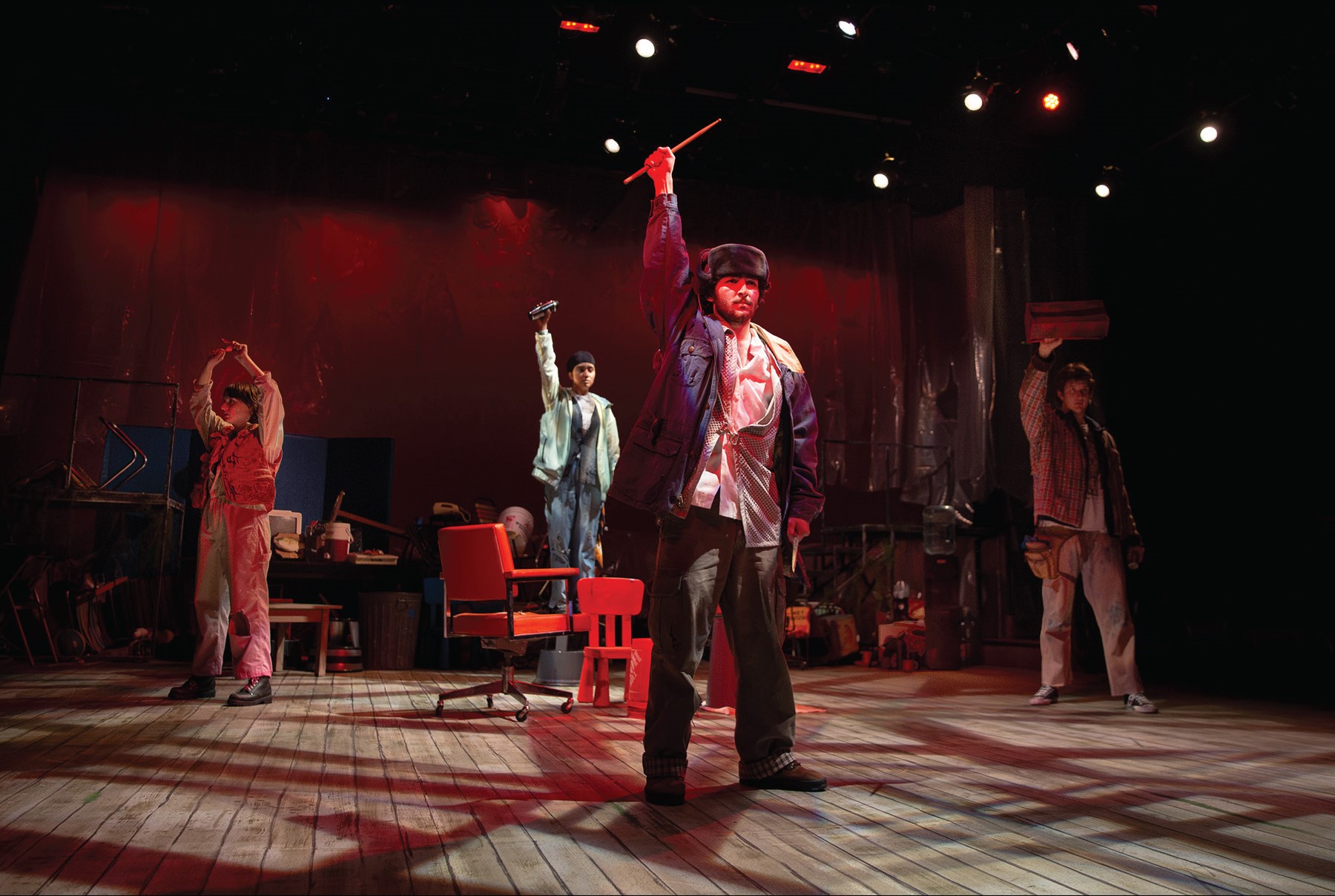SALT LAKE CITY — While sitting through Town Hall, written by Caridad Svich, I began to wonder what a conservative-themed play might look and sound like. Town Hall opens in absolute darkness, as the actors come out dressed like dystopian survivors as they wander around the debris that makes up the set with their flashlights. As each new character emerges, everyone is silent with only the sounds of shuffling around to be heard. Just then, the lights turn on and the characters begin to speak. At no point in the play is it clear if audience participation is expected, as each actor looks to the audience to begin asking rhetorical questions. When Avneet Kaur Sandhu asks about fear, and a woman responds to these questions, but Avneet never breaks character to engage this woman.

Town Hall is the epitome of people talking without saying anything. Even when some of the ideas presented seem interesting, they are not meaningfully explored and seem completely detached, even from the characters who seem to be advocating for them. Even the names of everyone (which are the actual names of the actors) are not revealed until the very end, and when they talk to the audience, it does not actually matter.
Perhaps it is because of the type of people who are drawn to theatre — both as audience members and professionals — that the two most salient moments in the production brought up memories of the pseudo-leftism popularized by social media. When Tyler Kline sits on the floor and with a pair of drum sticks begins to bang on a chair next to him and a turned over garbage pail, he begins to sing about war, and the overhead lights turn red and white. As he continues to sing, the other actors come out to condemn war, shouting at one point, “Make of me no other war.” The second most poignant scene in Town Hall is when Avneet talks about her friend, who has sent her an image of a piece of paper that she begins to read. All the lines say, “After . . .” and then the name of a city where a mass shooting or politically motivated violence happened: “After Buffalo,” “After Christchurch,” “After Las Vegas,” and on and on it goes. Cities outside the U.S. did not ping much for me, but many of the incidents within America certainly brought up memories.

Because the content of the play seemed more like a litany of white liberal lamentations, nothing really connected for me, a black pragmatist. Even now, most of the play has faded away like a dream, because it was not actually grounded in any action, and the script would not even commit to the complaints and observations it makes throughout. The characters announce, not long after the play begins, that, “This is not important. This is just a play.” Because it is not clear what the play is actually about, or even what the characters necessarily want, the only thing to latch onto is lighting and sound design.
Sandhu announces, also at the beginning of the play, that, “Noise is a part of our lives, even in silence,” and this is very consistent throughout. Scene changes are indicated by the overhead lights flickering, regularly accompanied by electric sounds. Sandhu rings a small bell she carries with her, to get everyone’s attention and repeats the same lines over and over, “There’s coffee. It’s bad, but it’s coffee.” Multiple times she says that the situation is not therapy and that the characters are not friends, but could become friends if they want. These all act as cues, signaling a move to a new topic, a different character. Even though lights changed colors throughout the performance (regularly dimming throughout), there is a moment when Cormac Bywater is sitting on a small table across from Sandhu, seated in a chair, and there is a single spotlight on them as they chat in the play’s gibberish. And throughout the play, numerous sound effects are heard, such as planes flying overhead, insects at night, ocean waves, singing from the actors, etc.

Another moment in the play, that felt uniquely clever, was when Griz Siebeneck talks about going to church as a child, prompting a single spotlight on the performer. At one point, Sienbeneck is talking about evil while facing Cormac, who is situated atop the metal staircase. He is miming Sienbeneck, and is creates this perfect image of him as a priest and Sienbeck as a member of the congregate. Mentions of the choir, prompt singing from Sandhu — a tune not credited in the playbill, unfortunately — but is lovely to listen to. It was a lovely moment created by director Latoya Cameron.
What are people supposed to take from Town Hall? For me, not a whole lot. But maybe other people might enjoy it, especially if you they care about any of the things the characters are saying.
[box]Town Hall plays Wednesdays through Sundays at 7:30 PM and Sundays at 2 PM at the PAB Studio 115 on the campus of the University of Utah. Tickets are $0-17.50. For more information, visit theatre.utah.edu.[/box]

